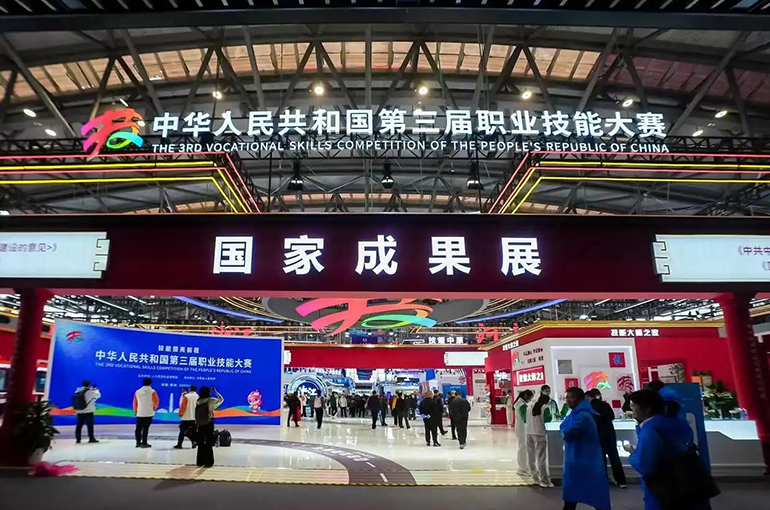 One-Third of Contestants in China’s 'Olympics of Skills' Hold University Degrees
One-Third of Contestants in China’s 'Olympics of Skills' Hold University Degrees(Yicai) Sept. 19 -- The third Vocational Skills Competition of China, known as the country’s “Olympics of Skills,” has drawn over 1,000 contestants with university degrees to compete in high-tech fields such as intelligent manufacturing and digital technology.
This year’s event features 3,420 contestants, including 13 with doctoral degrees, 286 with master’s degrees, and 843 with bachelor's degrees. University degree holders make up 33 percent of the total, Wu Liduo, an official at the Ministry of Human Resources and Social Security, said at a press conference yesterday.
Held every two years since 2020, the competition is taking place in Zhengzhou, Henan province, and will run through Sept. 23. A total of 106 sub-competitions will be held, more than half in intelligent manufacturing, high-end equipment, digital technology, and new energy, Wu said.
While contestants previously came mainly from junior colleges, this year has seen a surge in participants with bachelor’s degrees or higher. This reflects a shift in China’s vocational education focus from traditional blue-collar training to the development of high-quality, interdisciplinary talent, Zhang Chenggang, director of the China New Employment Forms Research Center, told Yicai.
Wu noted that the rise in highly educated participants, particularly in technology-intensive fields, signals growing demand for vocational and technical talent with advanced education as China deepens its technological development.
Most of the contestants with doctoral degrees are engaged in teaching and research at vocational and technical colleges, while those with master’s degrees are mainly employed in research and development roles or as front-line staff at high-tech firms, Yicai learned from the event organizers.
The participation of highly educated contestants highlights the deepening integration of vocational education and technological innovation, Zhang said, adding that vocational skills now involve not only operational abilities but also knowledge, technology, and innovation capacity.
Editors: Dou Shicong, Emmi Laine